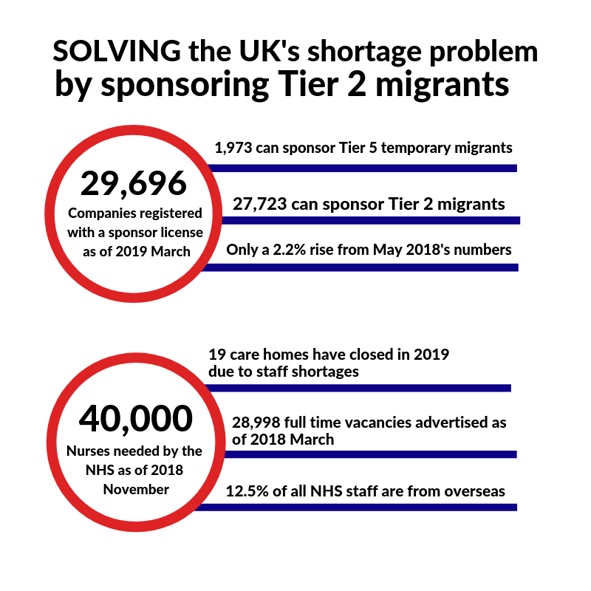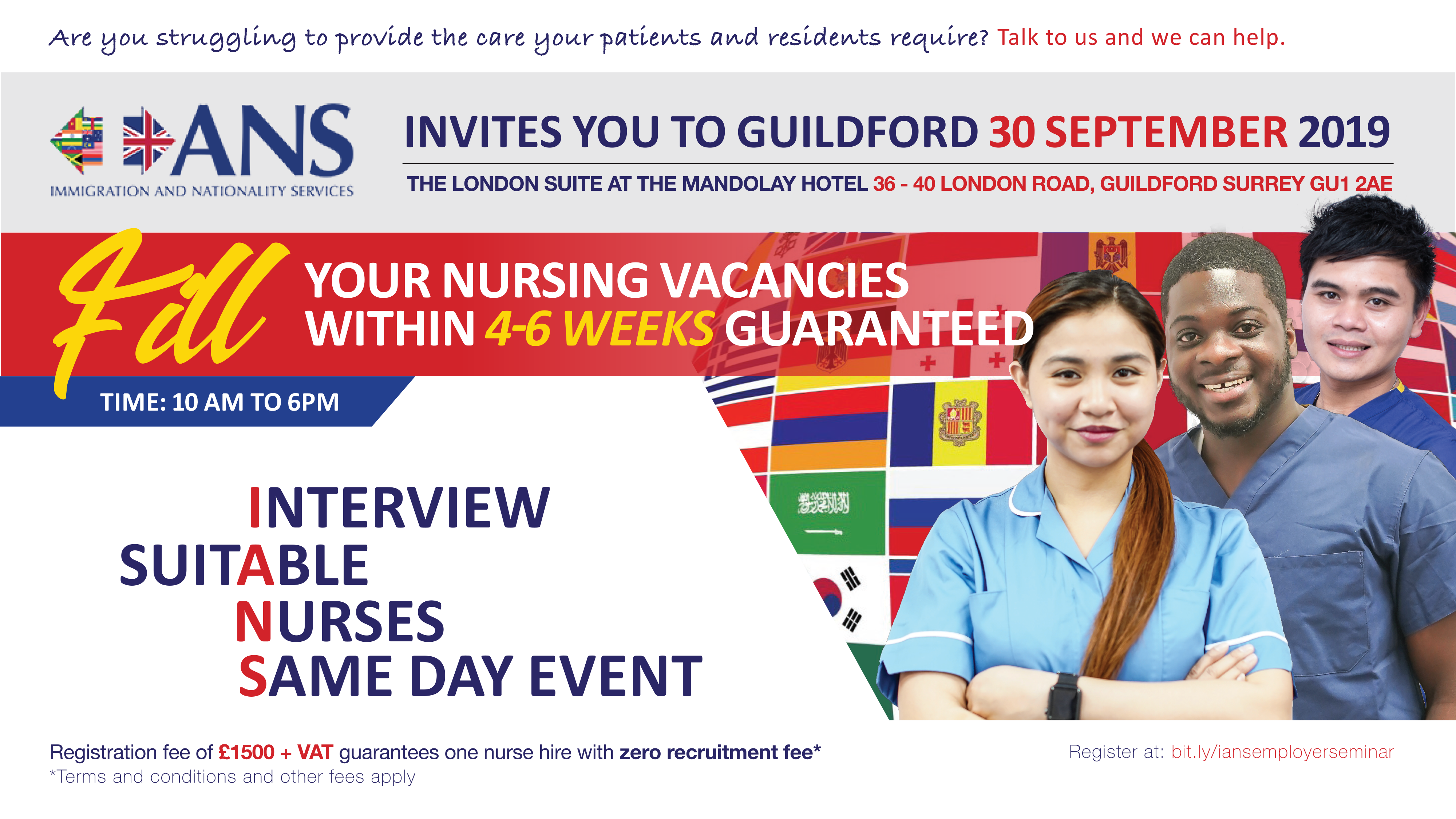For many employers in the UK, obtaining a sponsor license can be a very foreign concept. Often, it is thought that sponsor licenses are only exclusive to large, multinational companies. However, given the current state of the skills occupation shortage in the UK, and the uncertainty of Brexit looming, it is only smart for companies (small business included) to think about getting a sponsor license.
 As of 11 March 2019, there are 29,696 companies registered with a sponsor license under the Home Office. Out of that number, 27,723 companies can employ Tier 2 migrants, with the rest only able to employ Tier 5 temporary migrants. With the cost of obtaining a sponsor license, and the compliance requirements that come with the territory, it’s no surprise that UK companies may be hesitant to offer employment to non-EEA citizens. In fact, the number of sponsors on the registry list has only increased by 2.22% since 25 May 2018.
As of 11 March 2019, there are 29,696 companies registered with a sponsor license under the Home Office. Out of that number, 27,723 companies can employ Tier 2 migrants, with the rest only able to employ Tier 5 temporary migrants. With the cost of obtaining a sponsor license, and the compliance requirements that come with the territory, it’s no surprise that UK companies may be hesitant to offer employment to non-EEA citizens. In fact, the number of sponsors on the registry list has only increased by 2.22% since 25 May 2018.
To obtain and maintain a sponsor license, an employer has comply with numerous procedures and requirements to ensure their business is up to the home office’s standards. Upon submission of the application form online and documents to the Home Office, background and eligibility checks will be done to assess if your business is equipped to sponsor a Tier 2 migrant. This includes checking if the business is established enough in the UK or is able to afford the cost of sponsorship, and determining if the Resident Labour Market Test was done properly for the position intended for the migrant. The Home Office may conduct visits at this stage, and the whole process could take up to 16 weeks. All these hurdles, however, will be worth it once the company has obtained the license.
There are numerous advantages to hiring migrants in the UK. In a research paper published by the UK Department for Innovation and Skills, businesses were asked for data on clear migrant impacts in relation to profit and loss, but unsurprisingly they were unable to distinguish between migrants and non-migrants. Instead, reported impacts on profit came through other key themes: skills, innovation, knowledge sharing, training, migrants connections, and integration. A sponsor license would naturally give an employer a bigger pool of potential employees, and these employees can fill skills gaps in their business. It would then be easier to attract more clients, fulfil contracts, and take on more work thanks to new skills and talent. A more diverse cultural landscape in the office would also lead to increase in access to international knowledge, as well as strengthening contacts in international markets through these new connections. Tier 2 Visas are also usually issued with a 3 year duration, so this suggests a high retention rate for employees to stay in the company.
For industries with jobs under the shortage list, hiring non-EEA workers under a Tier 2 visa is often the only solution to keeping their business afloat. This is heavily apparent in the healthcare sector—according to The Guardian, the NHS in England is already short of over 100,000 staff, including 10,000 doctors and 40,000 nurses. Not only that, there are more and more care homes looking to hire nurses to cater to their growing clientele. This shortage is estimated to deepen during the next few years. According to the briefing by the King’s Fund, Nuffield Trust and Health Foundation:
“If the emerging trend of staff leaving the workforce early continues and the pipeline of newly trained staff and international recruits does not rise sufficiently, this number could be more than 350,000 by 2030,”
CareConcepts, a private care company established in 2004 with care homes in Manchester and Warrington, recently experienced a shortage of nurses for their homes. Without a sponsor license, their options for well-qualified nurses were very limited, so they appointed IANS to help them recruit 5 international nurses and obtain a sponsor license on 15 January 2019. In just 5 business days, on 23 January 2019, an application for a license was submitted and IANS immediately began recruitment of nurses for their vacancies. As soon as CareConcepts was able to issue Certificates of Sponsorship, IANS already had 6 nurses available for them to hire.
Getting a sponsor license saved CareConcepts from a staff shortage. They will now be able to expand their business by getting more clients and taking on more contracts. If you want to fill your vacancies and skills gaps, widening your employment pool to skilled workers from non-EEA countries will definitely be an advantage. With Brexit on the horizon as well, the future of the UK’s immigration system is unclear. Obtaining a sponsor license at this time would advantageously secure your company’s right to recruit and maintain migrant employees.
Interested in getting a sponsor license? Contact IANS today and don’t miss your chance!
LET'S SOLVE THE NURSING CRISIS TOGETHER
If you wish to know more about overseas nursing recruitment and the savings you will acquire, please come to our Care Providers Seminar in Guildford on Monday 30 September 2019. Not only will you learn about our tried and tested process, you will also hear our success stories and you will be introduced to your next nurse hire for a registration fee of £1500* and interview the nurse on the same day! Plus, you don't want to miss this chance to mingle with fellow care providers in your area and widen your business network! Click the image below to find out more and register!


Hurry! Seats are filling up. Don't miss your chance to solve your staff shortage problems. Get in touch now!
*Terms and conditions and other fees apply
Sources:
https://files.digital.nhs.uk/8F/D1CA73/nhs-vac-stats-feb15-mar18-eng-rep.pdf
https://www.independent.co.uk/news/health/brexit-latest-eu-nursing-shortage-hospital-social-care-nhs-a8618976.html
https://www.telegraph.co.uk/news/2018/07/27/nhs-increasingly-desperate-nurses-midwives-applications-continue/
https://www.theguardian.com/society/2018/nov/15/nhs-could-be-short-of-350000-staff-by-2030
https://www.bbc.co.uk/news/health-28300148
https://assets.publishing.service.gov.uk/government/uploads/system/uploads/attachment_data/file/406760/bis-15-153-impacts-of-migrant-workers-on-uk-business.pdf
https://readyforbrexit.co.uk/analysis-karendeep-kaur-explains-how-to-obtain-a-sponsor-license



COMMENTS